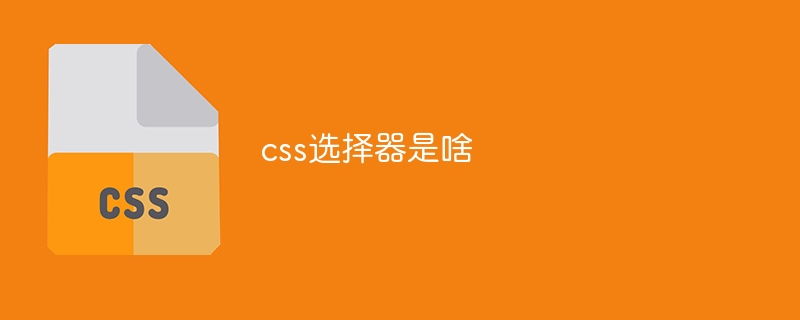
CSS selectors are used to match HTML elements, allowing us to apply styles to specific elements. Selector types include: Universal, Element, ID, Class, Descendant, Child, and Adjacent. To use it, specify the selector and style attributes to apply in the style sheet.

What are CSS selectors?
CSS selectors are used to match and select elements in HTML documents. They allow us to apply styles to specific HTML elements, thereby controlling their visual presentation.
Type of selector:
p matches all paragraph elements. #my-id matches elements with the id "my-id". .my-class matches all elements with the class name "my-class". p span matches all span elements whose parent element is a paragraph element. div > p matches all div elements whose direct children are paragraph elements. p span matches any span element immediately following a paragraph element. Usage:
Selectors are used in CSS style sheets to select elements to which styles should be applied. The syntax is as follows:
<code>selector {
property: value;
}</code>For example, the following style sets the text color of all paragraph elements to blue:
<code>p {
color: blue;
}</code>The above is the detailed content of What is css selector. For more information, please follow other related articles on the PHP Chinese website!